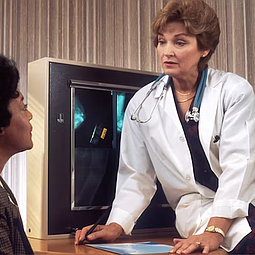Is regular heartburn or acid reflux anything to worry about? I eat a lot of Rolaids throughout the day to help manage it, but it’s gotten worse with age and it keeps me up at night too. What can you tell me?
--Belching Bob
Dear Bob,Almost everyone experiences heartburn or acid reflux from time to time, but frequent episodes can signal a much more serious problem. It’s estimated that more than 60 million Americans experience heartburn at least once a month, with around 15 million people who suffer from it daily.
Heartburn symptoms show up in a variety of ways – as a burning pain behind the breastbone, indigestion, or a sour or burning taste in the back of the throat. Other symptoms may include chest pain, excessing belching, a long-term cough, sore throat or hoarseness.
If you’re plagued by heartburn two or more times a week, and it’s not responding well to over-the-counter antacids you need to see your doctor, who may refer you to a gastroenterologist. Frequent bouts may mean you have gastroesophageal reflux disease, or GERDs, which can severely irritate and damage the lining of your esophagus, putting you at risk of Barrett’s esophagus and esophageal cancer if it’s not treated.
Lifestyle Adjustments
Depending on the frequency and severity of your heartburn, there are a number of lifestyle adjustments you can make that can help provide relief and avoid a more serious problem down the road, such as:
- Avoid trigger foods: Some foods can trigger heartburn symptoms like citrus fruits, tomatoes, fatty foods, chocolate, garlic, onions, spicy foods, mints, alcohol, coffee and sodas. You should keep a food diary to track which foods cause you the most problems and avoid them.
Eat smaller, slower and earlier: Smaller portions at mealtime and eating slower can help reduce heartburn symptoms. You should also wait at least three hours after eating before lying down or going to bed.
Lose weight: Having excess weight around the midsection puts pressure on the abdomen, pushing up the stomach and causing acid to back up into the esophagus.
Quit smoking: Smoking can increase stomach acid and weaken the valve that prevents acid from entering the esophagus.
Sleep elevated: To help keep the acid down while sleeping, get a wedge-shaped pillow to prop yourself up a few inches. If that’s not enough, try elevating the head of your bed six to eight inches by placing blocks under the bedposts or insert a wedge between your mattress and box spring. Wedges are available at drugstores and medical supply stores. Sleeping on the left side may also help keep the acid down.
Treatment OptionsIf the lifestyle adjustments don’t solve the problem, or if antacids (Tums, Rolaids, Maalox, Mylanta or Alka-Seltzer) aren’t doing the trick, there are a variety of over the counter (OTC) and prescription medications that can help, including:
H-2 Blockers: Available as both OTC and prescription strength, these drugs (Pepcid, Tagamet, Axid and Zantac) reduce how much acid your stomach makes but may not be strong enough for serious symptoms.
Proton-Pump Inhibitors (PPI): If you have frequent and severe heartburn symptoms PPIs are long-acting prescription medications that block acid production and allow time for damaged esophageal tissue to heal. They include Nexium, Prevacid, Prilosec, Zegerid, Protonix, Aciphex and Dexilant. Prevacid, Nexium, Prilosec and Zegerid are also available OTC. But be aware that long-term use of PPIs can increase your risk for osteoporosis and chronic kidney disease.
If the medications aren’t enough, there are also surgical procedures that can tighten or strengthen the lower esophageal sphincter so gastric fluids can’t wash back up into the esophagus.
 Jim Miller
Jim Miller





